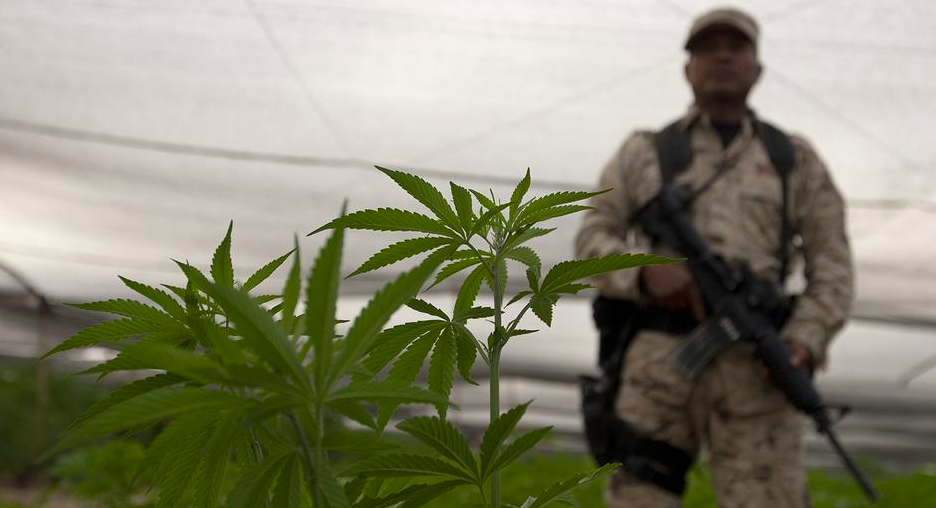One of the most controversial and decisive discussions in Mexico’s recent presidential election deals with the problem of violence related to criminal organizations. This violence has affected practically all aspects of the country’s social life for over a decade.
The decision of starting a war on drugs by President Felipe Calderon (2006-2012) received the ample support of the U.S. government. The policy was continued with no variations during Pena Nieto’s presidency (2012-2018) and has resulted in more than 200,000 deaths and over 30,000 disappearances.
The Mexican economy, especially on microlevel, has been hardly affected by the different forms of criminality like extortions, robbery, kidnapping, organ trafficking, and slavery. This humanitarian crisis explains the high volume of voters that elected the candidate perceived to be the most convincing opposition to the drug policy the former two presidents had maintained for several years.
It is indicative that the candidates of the National Action Party (PAN) and the Institutional Revolutionary Party (PRI), who respectively flagged Calderon and Nieto, insisted in presenting Andres Manuel Lopez Obrador‘s security agenda as favorable to criminals. They also claimed the idea of legalizing marijuana and opioids to be nonsensical.
US Will Not Support Legalization
In recent days, White House spokesperson Sarah Sanders stated the U.S. would not support any drug legalization in Mexico. Clearly, the PAN and PRI are aligned to the U.S. policies on drugs and would not open the debate towards their decriminalization. But the people’s vote was against those deadly policies.
Mexican democracy has been categorical in this respect, and any movement in the sense of keeping drugs criminalized will be deemed a threat to the country’s security. It is not because Lopez Obrador’s party MORENA has called for a national debate on this topic.
The debate has been in place since Plan Merida (or Merida Initiative) started in 2007, through which the U.S. supports the war on drugs in Mexico. Before 2007, the term “war on drugs” was perceived as a mere metaphor to refer to administrative and police actions to control drug trafficking. But since 2007, Mexican’s human rights were severely violated in different regions where that war was literally a war against the population: false positives (the presentation of innocents as culprits), illegal detentions, and official actions supporting mafias’ interests were reported insistently. It is unbelievable that U.S. officials weren’t aware that agents benefited by Initiative Merida were involved in this corruption.
Corruption and its Victims
Corruption on all governmental levels became not only apparent but also lethal as the number of its victims increased to intolerable levels. This originated the formation of various groups of self-defense in the states of Michoacan, Guerrero, and Veracruz. Several organizations of victims were formed in Mexico, Central America, and the U.S. too, where the number of asylum applications increased exponentially.
In the U.S., the havoc caused by drugs is well-known, but we also need to know that the number of casualties caused by the war on drugs in Mexico and Central America is largely superior.
For Mexicans, corruption is the core issue to address when talking about deaths as a result of this war. For that reason, corruption is the most important issue the elected president included in his political platform. This topic goes beyond the drugs issue; it also has to do with several government practices like fraudulent contracts that overspend public funds, impunity, and all sorts of illegal businesses made possible through the misuse of power.
Why is the War on Drugs Fought in Mexico?
Those who have promoted the decriminalization debate in Mexico have questioned why the war on drugs is fought in this country and not in the U.S., where we don’t see the military populating the streets in pursuit of criminals, nor the innumerable checkpoints where civilians are constantly criminalized. They also question the almost nonexistent investigation into money laundering and the transfers of currency to the tax haven countries. Even the criteria to decide which drugs should be illegal are unclear, as well as the reasons why this public policy is not addressed as a health problem instead of a police-military issue.
This lack of certainty goes to the point of absurdity, when the World Health Organization reports marijuana as “relatively safe drug,” and doctors prescribe opioids legally. If we take into account that many inmates in Mexican jails are there because marijuana possession was categorized as selling drugs, this absurdity becomes tragic.
For regular Mexican citizens, drugs are not the problem, but the war on drugs that has been used as an excuse to violate their rights is. If the addiction problem in the U.S. has created a strong market demand and forced peasants and marginal populations to be involved in the production and trafficking of drugs, the Mexican task would be reducing marginality not by war, as U.S. government wants it to be, but with economic development, one of the main points included in a letter the elected Mexican president sent to U.S. President Donald J. Trump in recent days.
Lopez Obrador proposes an amnesty in place of jail to those people who have been forced to directly or indirectly participate in the drugs business. Olga Sanchez Cordero, a former member of the Mexican Supreme Court and the newly appointed Interior Minister, has a deep knowledge of the arguments about drugs depenalization that have been discussed by the Mexican public for more than a decade. It is expected that she is going to address this issue with maturity and responsibility no authority in Mexico has demonstrated before.
Disclaimer: The views and opinions expressed here are those of the author and do not necessarily reflect the editorial position of The Globe Post.



















